
|
The Mathematical Association of America Maryland-District of Columbia-Virginia Section |
- Home
- History
- Main History Page
- Section History Document
- List of Past Officers
- Charter Members
- African-American Participation
- Stories from Section Members
- Section NExT Fellows
- Obituaries
- Smith Award Recipients
- Christensen Award Recipients
- Meritorious Service Award Recipients
- Undergraduate Award Winners
- Meeting Archive
- Past Meetings
- Talk Archive
- Old Section NExT Programs
- Newsletter Archive
- Meeting Minutes Archive
- Miscellaneous Documents
- Meetings
- Minutes
- Fall 2024 Executive
- Fall 2024 Membership
- Spring 2024 Executive
- Spring 2024 Membership
- Fall 2023 Executive
- Fall 2023 Membership
- Spring 2023 Executive
- Spring 2023 Membership
- Fall 2022 Executive
- Fall 2022 Membership
- Spring 2022 Executive
- Spring 2022 Membership
- Fall 2021 Executive
- Fall 2021 Membership
- Spring 2021 Executive
- Spring 2021 Membership
- Fall 2020 Executive
- Fall 2020 Membership
- Fall 2019 Executive
- Fall 2019 Membership
- Spring 2019 Executive
- Spring 2019 Membership
- Fall 2018 Executive
- Fall 2018 Membership
- Spring 2018 Executive
- Spring 2018 Membership
- Fall 2017 Executive
- Fall 2017 Membership
- Spring 2017 Executive
- Spring 2017 Membership
- Minutes Archive
- Newsletters
- Section NExT
- Awards
- Students
- Links
- Search
Fall 2024 Meeting at Old Dominion University
Conference Links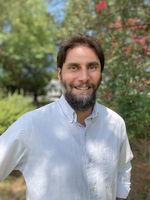
Aaron Trocki (on behalf of MAA MD-DC-VA COMMIT)Elon UniversityFriday workshop: Strategies for Making Mathematics Engaging and Relevant Abstract: Throughout my twenty plus years of teaching mathematics, I have been struck by the need to engage students in this rich discipline and help them see its relevance to their lives. This realization has led to numerous pedagogical experiments and collaborations to promote the teaching and learning of mathematics. In this workshop, I will share three recent efforts in undergraduate mathematics with goals that included increasing the relevance of math to students' lives; promoting reflection and engagement with student multimodal writing; and utilizing generative artificial intelligence to connect mathematics to other disciplines. Workshop participants will learn about these efforts and engage with others to develop actionable strategies for transforming mathematics teaching and learning for the students we serve. Biographical Sketch: Aaron Trocki is an Associate Professor of Mathematics and the Coordinator of the Secondary Teacher Licensure Program at Elon University in North Carolina. He received his B.A. in Mathematics from Judson College, M.A. in Secondary Mathematics Teaching from Western Illinois University, and Ph.D. in Mathematics Education from North Carolina State University. He joined the Elon faculty in 2014 and teaches undergraduate courses in mathematics and courses for prospective math teachers. His research interests include evidence-based instructional practices and technology for teaching mathematics. Dr. Trocki collaborates with colleagues to make mathematics engaging and relevant to the lives and interests of students. About MD-DC-VA COMMIT:
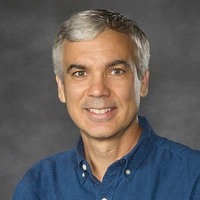
Richard HammackVirginia Commonwealth UniversityBanquet Address: The Hypercube Pop-Up Book Abstract: I explain and demonstrate (with video clips) my latest project, a pop-up book about how to visualize the tesseract and other n-dimensional cubes. I also discuss the mathematics that underlies some of the book's pop-up mechanisms. Biographical Sketch: Richard Hammack is a mathematics professor at Virginia Commonwealth University. His research interests include graph theory and combinatorial topology, as well as mathematical visualization and art. He is the author of a popular open proofs textbook and coauthor of a research monograph on graph products. Hammack holds a BFA in painting from Rhode Island School of design, a MS in computer science from Virginia Commonwealth University and a PhD in mathematics from UNC-Chapel Hill. 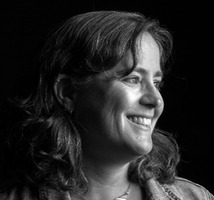
Kira HammanUrban Rural Action and the MAASaturday Morning Address: What's Your Story? Abstract: People have stories, and mathematicians are people. You do the modus ponens! From sweeping narratives – how did you get here and what have you learned? – to clever anecdotes – what happened in your class this week? – our stories connect us. They remind us that our experiences matter, to ourselves and to each other. When we tell our stories, we're saying, “here is what I think, how I feel, what I did. May it be of use.” Stories are offerings, and yours are valuable. The trick, of course, is in the telling, which can be difficult and time consuming and, sometimes, deeply personal. In this hands-on session, we will talk about choosing which stories to tell, navigating the telling of them, and ultimately getting them out into the world. Specifically, participants will begin a draft of a story that could be submitted to an MAA publication or another outlet that publishes math-adjacent stories. Bring your ideas, your experiences, and whatever materials or devices you use to write! Biographical Sketch: Kira Hamman is the chair of the MAA Council on Communities and the editor of the Math Values blog. She spent 25 years as a faculty member in mathematics, during which time she worked at the intersection of math with social justice and civic engagement and on helping other mathematicians engage in public scholarship. Earlier this year, Kira left higher education to work full-time on reducing division, hate, and violence in the United States through the nonprofit organization Urban Rural Action, where she is currently the Senior Director of Programs. 
Bonita SaundersNational Institute of Standards and TechnologySaturday Afternoon Address: An American Treasure: Mathematician, Evelyn Boyd Granville, 1924-2023 Abstract:
In 1945, Evelyn Boyd Granville became just the second African American woman to obtain a Ph.D. in mathematics in the U.S. This talk presents some highlights of her life and offers some thoughts on why she was able to constantly re-invent herself, flourishing in academia, as well as private industry and government, where she made significant contributions to NIST and to NASA's space program as a “hidden” Hidden Figure. Her amazing story should be examined by anyone who's searching for the reasons why students succeed. We take a brief look at her work in pure and applied mathematics and mathematics education from the 1950s until her final retirement in the late 1990s. For more information on Granville, see the author's tribute in the MAA Focus June/July 2024 edition: Biographical Sketch:
Bonita Saunders leads the Mathematical Software Group in the Applied and Computational Mathematics Division (ACMD) at the National Institute of Standards and Technology (NIST). She is a member of the Editorial Staff for the NIST Digital Library of Mathematical Functions (DLMF), a publicly available, online resource used world-wide by mathematical and physical scientists who need differential equations, recurrence relations, asymptotic approximations, and other crucial information for special mathematical functions that arise in their research. Dr. Saunders is also the Project Leader for the DLMF Standard Reference Tables on Demand Project, a collaborative effort with the University of Antwerp Computational Mathematics Research Group to develop an online software testing system for generating certifiably accurate tables of special function values at user specified precision. |
Copyright © 2024 - The Mathematical Association of America
Please send comments, suggestions, or corrections for this page to Brian Heinold at heinold@msmary.edu
Last Modified: 11/07/2024 - 04:10pm
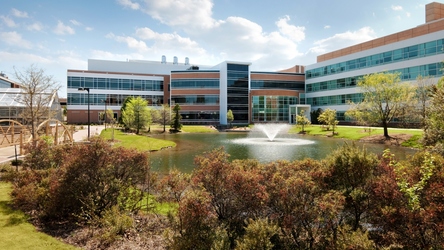 The Fall 2024 Meeting of the MD-DC-VA section of the MAA
was held at
The Fall 2024 Meeting of the MD-DC-VA section of the MAA
was held at 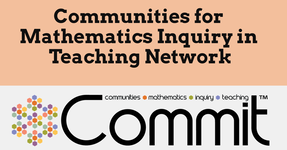 The MD-DC-VA COMMIT was formed in early 2016 (the group was originally called the MD-DC-VA IBL Consortium) as a network of college math instructors with a common interest in teaching and learning using inquiry. We recognize that teaching with inquiry can look very different in different contexts, and view our role as supporting instructors in utilizing the version that works for them and their students. Names that have been used for teaching with inquiry include: ambitious teaching, project-based learning, complex instruction, inquiry-oriented learning, discovery learning, inquiry-based learning, and student-centered teaching. We welcome members who are new to teaching with inquiry as well as those who are more experienced. Please join us!
See the
The MD-DC-VA COMMIT was formed in early 2016 (the group was originally called the MD-DC-VA IBL Consortium) as a network of college math instructors with a common interest in teaching and learning using inquiry. We recognize that teaching with inquiry can look very different in different contexts, and view our role as supporting instructors in utilizing the version that works for them and their students. Names that have been used for teaching with inquiry include: ambitious teaching, project-based learning, complex instruction, inquiry-oriented learning, discovery learning, inquiry-based learning, and student-centered teaching. We welcome members who are new to teaching with inquiry as well as those who are more experienced. Please join us!
See the